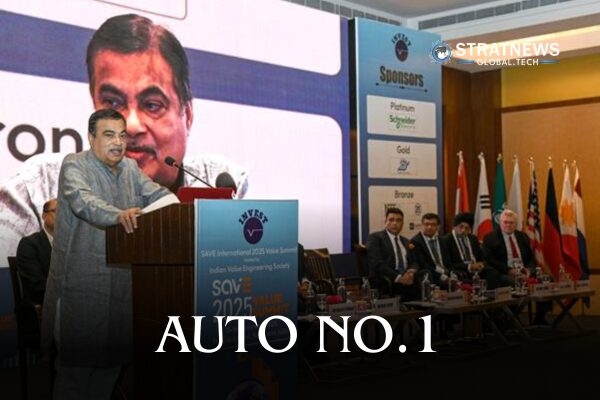India Aims for No. 1 Spot in Global Automobile Manufacturing: Nitin Gadkari
Union Minister for Road Transport and Highways, Nitin Gadkari, announced a bold vision to make India the world’s leading automobile manufacturing hub. Speaking at the International Value Summit 2025 in New Delhi, he highlighted India’s rapid rise in the sector, having recently overtaken Japan to become the third-largest automobile market globally.
“India is no longer just an assembly hub. Global brands are now exporting vehicles from here to the world,” Gadkari said. He pointed out that India’s two-wheeler industry alone exports more than half of its production, underscoring the nation’s expanding global influence.
The government aims to push India to the top position in global automobile manufacturing within the next five years.
Driving the Future of Green Mobility
The Minister stressed India’s leadership in sustainable transport. He said electric vehicles, hydrogen fuel, and alternative fuels are key to this transformation. Hydrogen trucks have already been launched, with pilot projects running across ten routes.
To accelerate progress, the government has allocated ₹600 crore in grants to strengthen hydrogen infrastructure, supported by companies like Tata Motors, Ashok Leyland, Reliance, and Indian Oil. New fuel options such as isobutanol and bio-bitumen are also being tested. “Our aim is to lead the world in green mobility,” Gadkari stated.
Infrastructure Growth Transforming Connectivity
Highlighting advances in road development, Gadkari said India now has the second-largest road network globally. Major projects, including the Chennai–Bengaluru expressway and the ₹23,000 crore Bengaluru Ring Road, are designed to cut congestion and improve travel times.
“Travel time from Panipat to Delhi Airport has been reduced to 35 minutes, down from three hours,” he noted, stressing the dramatic impact of upgraded highways.
Sustainability at the Core
Sustainability was another key theme of his address. Gadkari spoke about the use of waste materials in road construction. Over 80 lakh tonnes of waste from Delhi’s Ghazipur landfill have already been repurposed, reducing the landfill’s height by seven metres.
He also highlighted trials of bio-bitumen produced from rice straw, which outperforms petroleum-based alternatives while helping reduce stubble burning. “We are converting waste into wealth,” he said.
Call for Global Partnerships
Gadkari urged international collaboration in innovation and technology. Areas such as tunnel engineering, hydrogen transport, precast road construction, and circular economy solutions offer vast opportunities.
“We do not face a resource problem. Our roads are monetised, and revenue is strong. What we need is innovation, technology, and cooperation,” he told delegates.
with inputs from PIB


